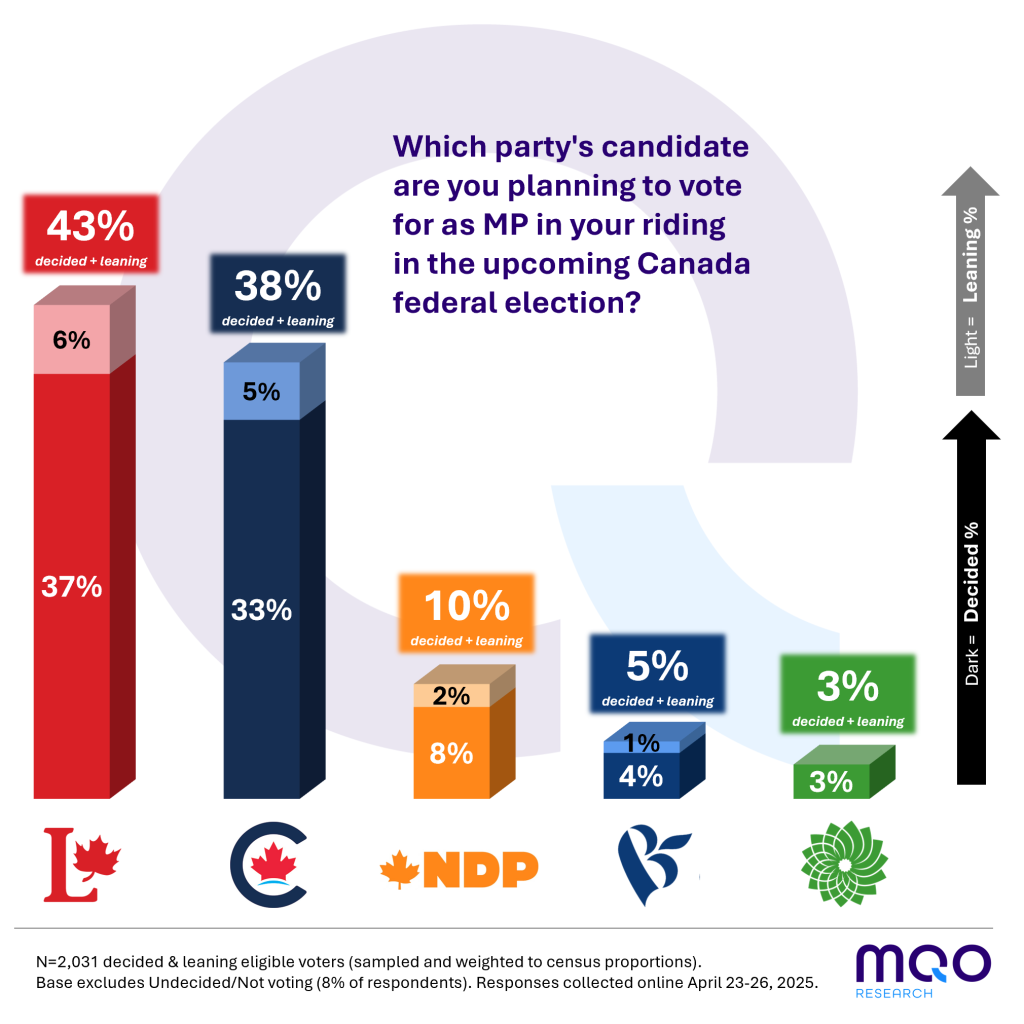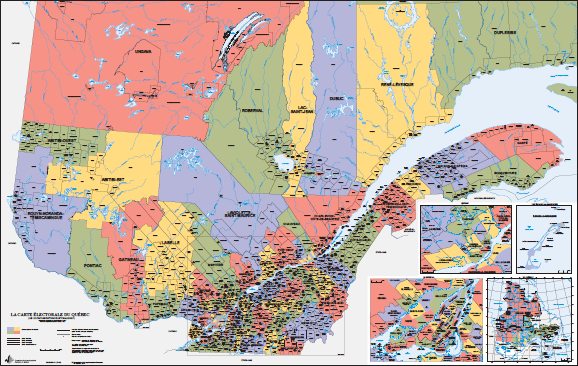Who Will Win Canada's Election? Final Predictions Before Results Day - Expert Analysis 2025

Who Will Win Canada's Election? Final Predictions Before Results Day
As Canadians prepare to head to the polls, political analysts, pollsters, and pundits are making their final predictions for what could be one of the most consequential federal elections in recent memory. In this comprehensive analysis, we examine the latest data, regional battlegrounds, and expert forecasts to answer the question on everyone's mind: who will form Canada's next government?
Current Polling Landscape
The final weeks of campaigning have shown significant volatility in polling numbers, with several parties experiencing momentum shifts. Here's where the major parties stand according to the latest aggregated polls:
Party Standings (Polling Average - April 2025)
- Conservative Party: 34.2%
- Liberal Party: 31.5%
- New Democratic Party (NDP): 19.7%
- Bloc Québécois: 7.1% (29.8% in Quebec)
- Green Party: 4.8%
- People's Party: 2.1%
📊 Poll Tracker Analysis:
"The narrow gap between the Conservatives and Liberals suggests a potential minority government scenario, with both parties within striking distance of forming government depending on regional vote distribution." - Electoral Analytics Canada
 Image: Polling trends over the final six weeks of the campaign show late momentum shifts
Image: Polling trends over the final six weeks of the campaign show late momentum shifts
Regional Battlegrounds
Ontario: The Kingmaker Province
With 121 of the 338 seats in the House of Commons, Ontario remains crucial to any party's path to government. Current projections show a tight race in Canada's most populous province:
- Greater Toronto Area: Liberals holding urban strongholds but facing suburban challenges
- 905 Region: Traditional election bellwether showing Conservative gains
- Southwestern Ontario: Manufacturing-heavy ridings leaning Conservative
- Northern Ontario: NDP strength in certain ridings with Liberal vulnerabilities
Key Ridings to Watch:
- Mississauga-Lakeshore
- London North Centre
- Hamilton Mountain
- Vaughan-Woodbridge
- Ottawa Centre
Quebec: Bloc Resurgence?
The Bloc Québécois has maintained strong support in Quebec, potentially limiting Liberal and Conservative gains in the province:
- Montreal Island: Remaining largely Liberal but with some NDP opportunities
- Quebec City: Conservative strongholds with some competitive races
- Rural Quebec: Bloc Québécois dominance challenging Liberal incumbents
 Projected seat distribution in Quebec based on current polling data
Projected seat distribution in Quebec based on current polling data
Western Canada: Conservative Heartland with Urban Battlegrounds
- British Columbia: Three-way races between Conservatives, Liberals, and NDP
- Alberta: Conservative dominance with potential Liberal/NDP breakthroughs in Edmonton and Calgary
- Saskatchewan/Manitoba: Some competitive ridings amid Conservative strength
Atlantic Canada: Liberal Territory Under Threat
Traditional Liberal strongholds in the Atlantic provinces are showing increased competitiveness:
- Nova Scotia: Several Liberal seats vulnerable to Conservative gains
- Newfoundland and Labrador: Liberal support remains strong
- New Brunswick: Potential Conservative pickups in several ridings
Seat Projections
Based on current polling trends, regional analysis, and electoral modelling, here are the projected seat ranges:
📋 Final Seat Projection Ranges:
- Conservative Party: 135-155 seats
- Liberal Party: 115-140 seats
- NDP: 30-45 seats
- Bloc Québécois: 25-35 seats
- Green Party: 1-3 seats
- People's Party: 0 seats
Note: 170 seats required for a majority government
Scenarios and Outcomes
Scenario 1: Conservative Minority
Probability: 45%
The most likely outcome based on current numbers. A Conservative minority would require cooperation with other parties to govern effectively, likely seeking case-by-case support rather than a formal coalition.
Scenario 2: Liberal Minority
Probability: 35%
Despite trailing in polls, efficient vote distribution could still result in a Liberal minority, potentially with support from the NDP to maintain government.
Scenario 3: Conservative Majority
Probability: 10%
Requires stronger-than-expected Conservative performance in Ontario and Quebec, along with a divided opposition vote.
Scenario 4: Liberal Majority
Probability: 5%
The path to a Liberal majority appears narrow, requiring significant polling errors and a last-minute voter shift.
Other Scenarios
Probability: 5%
Includes possibilities like an exact tie in seats or unprecedented vote splits leading to unexpected outcomes.
Key Issues Driving Voter Decisions
-
Housing Affordability Crisis
- Consistently ranked as voters' top concern
- All parties offering different solutions to address skyrocketing costs
-
Economic Management & Inflation
- Cost of living dominating kitchen table conversations
- Parties divided on taxation and spending approaches
-
Healthcare System Reform
- Provincial-federal tensions on funding and standards
- Staffing shortages and wait times concerning voters
-
Climate Change Policies
- Carbon pricing debates
- Energy sector transitions and economic impacts
-
Foreign Policy & National Security
- International positioning amid global tensions
- Defense spending commitments
 Polling on top voter concerns shows economy and housing dominating the conversation
Polling on top voter concerns shows economy and housing dominating the conversation
Expert Analysis
We consulted leading political scientists and electoral analysts for their final predictions:
"The Conservatives have maintained a consistent lead throughout the campaign, but the electoral math still favors the Liberals in key battleground ridings. We're likely looking at a minority government with a relatively small seat advantage for either major party."
— Dr. Eleanor Ramirez, Professor of Canadian Politics, University of Toronto
"Regional polling suggests that Quebec and suburban Ontario will ultimately decide this election. Watch for late shifts in the 905 region around Toronto to signal which way the wind is blowing on election night."
— Jean-Michel Bouchard, Senior Electoral Analyst, Canadian Democracy Institute
Voter Turnout Projections
Analysts are predicting a higher-than-average turnout for this election:
- Advanced polling numbers up 12% from 2021
- Youth voter registration increased 8%
- Issues-driven engagement suggesting 65-68% overall turnout
Timeline of Election Night Results
What to expect as results come in:
- 7:00 PM ET - Atlantic Canada results begin
- 9:30 PM ET - Quebec and Ontario results start flowing
- 10:00 PM ET - Prairie province results
- 10:30 PM ET - Critical Ontario riding projections
- 11:00 PM ET - British Columbia results begin
- 12:00-1:00 AM ET - Likely projection of overall winner
Historical Context
How does this election compare to previous close races?
- 2021: Liberal minority government (160 Liberal / 119 Conservative)
- 2019: Liberal minority government (157 Liberal / 121 Conservative)
- 2006: Conservative minority (124 Conservative / 103 Liberal)
FAQs
Q: When will we know the final results? A: While major networks may project a winner on election night, final results including mail-in ballots may take 2-3 days to confirm in very close ridings.
Q: What happens if no party wins a majority? A: The incumbent Prime Minister has the first opportunity to seek confidence of the House, typically by securing support from another party.
Q: Could there be a coalition government? A: While formal coalitions are rare in Canadian politics, confidence-and-supply arrangements (like we've seen recently) are increasingly common in minority situations.
Q: How accurate are the polls? A: Canadian polls have generally been reliable within 2-3 percentage points, though regional variations and late movement can affect seat projections significantly.
Additional Resources
- Elections Canada Official Site
- CBC Poll Tracker
- 338Canada Projection Model
- Riding-by-Riding Analysis Tool
Follow Our Live Coverage
Join us on election night for real-time results, expert analysis, and riding-by-riding breakdowns as the returns come in. Our live blog begins at 6:30 PM ET.
Sign up for election night alerts
Disclaimer: This analysis is based on polling data and expert opinions available as of April 29, 2025. Electoral projections are subject to margins of error and unexpected voter behavior. This article will not be updated after polls close.
Last updated: April 29, 2025
Tags: Canada election 2025, federal election predictions, Canadian politics, election forecast, polling analysis, minority government scenarios, battleground ridings Canada



